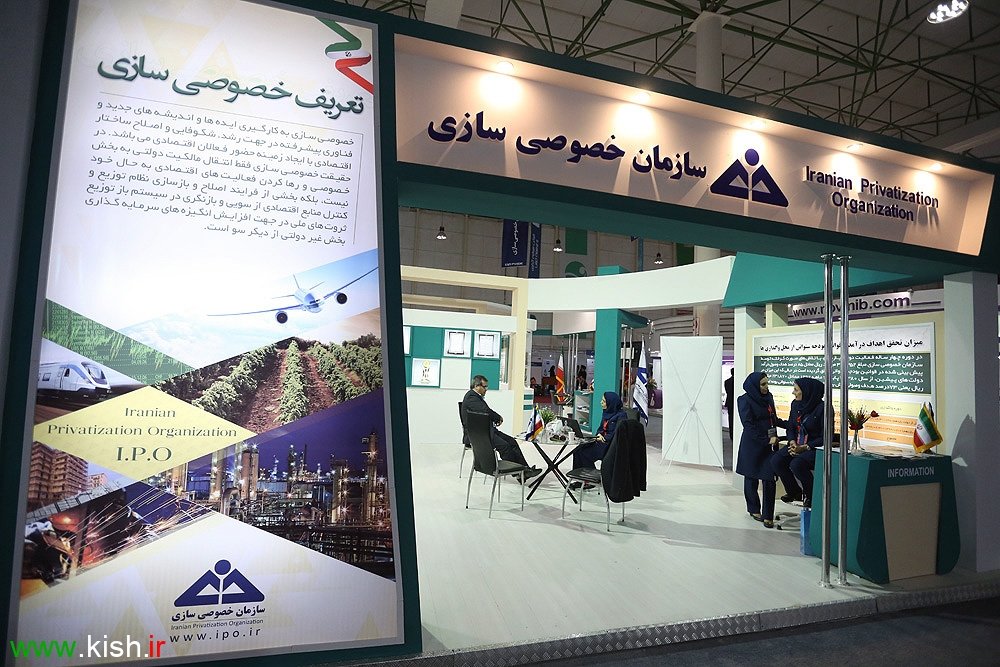Companies management should be revised in privatization

Downsizing the government has been an economic agenda of the countries with a centrally planned economy in the recent century.
A centrally planned economy is an economic system in which the government makes economic decisions rather than the interaction between consumers and businesses.
In Iran, implementation of privatization plan aimed at more productivity, investment making, job creation, promotion of trade balance, more competition in domestic economy, and reducing financial and management burden on the government has been under the spotlight over the past decade.
The law on implementation of the general policies of the Article 44 of Iran's Constitution on privatizing state-owned companies was declared in 2006 in a bid to downsize the government and promote the private sector’s role in the national economy.
The government envisioned a large privatization program in the Fifth Five-Year National Development Plan (2010-2015), aiming to privatize about 20 percent of the state-owned firms each year. Under the present interpretation of the Article 44, some state-owned companies have been privatized to reduce their financial burden on the country’s budget and also increase their productivity.
Downsizing the government is on the agenda, but a number of factors has been hindering privatization trend in the country, among them government’s high interference in the management of the transferred companies is a challenging one.
In a press conference on Wednesday, Head of Iranian Privatization Organization (IPO) Mir Ali Pouri-Hosseini announced that President Hassan Rouhani has ordered to transfer the rest shares of those companies that the government’s interference in their management is more than its shares.
“According to the general policies of Article 44, the government can hold at most 20 percent of the shares of the group 2 companies and based on the amount of its shares it can play some management role via the company’s board of directors, but about some companies, for example some car manufacturing ones, it is said that most of the board members are from the governmental body”, the official lamented.
Expressing dissatisfaction with this matter, he said that when the issue was reported to the president he was really annoyed and ordered to transfer the rest shares of the company to the private sector in such cases when the government’s interference is more than its share.
New supervision, supportive responsibilities for IPO
Economists believe that to tackle the privatization challenges, some new supervision and supportive duties and responsibilities should be defined for the IPO to conduct after privatizing the companies.
At present, there is the risk of returning to the government’s body specially to the Industry Ministry in a number of transferred units due to the weak performance of new management team.
Hamidreza Fouladgar, the chairman of Majlis (Iranian Parliament)’s Committee for Supporting Domestic Production and Supervising Implementation of Article 44, is of the opinion that the structures should be reformed; the government’s role should be policy making and leading, and the real private sector, i.e. people, should come to the scene.
He says: “Up to now, privatization has been just transferring to the private sector, but for the precise implementation of Article 44, other potentials of this article should be materialized which needs complete implementation of all prerequisites.”
Also on January 25, Presidential Chief of Staff Mahmoud Vaezi said: “We should downsize the government as much as possible and on the other hand we should support and organize the real private sector for its more flourishing.”
Revising the management structure in transferred companies is now a real necessity given that the privatization plan lags behind the schedule which has made IPO expedite the process, as on the Wednesday press conference, Pouri-Hosseini announced that transfer of the state-run shares to the private sector during the two-month period ending on the last day of current Iranian calendar year (March 20, 2018) will reach 5 trillion rials (about $110.37 million).
He said the value of transferred shares during the two-month time will equal that of the ten-month period of this year.
